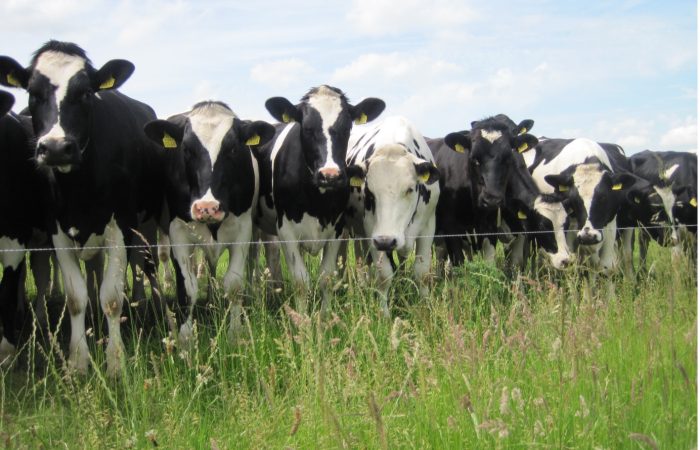Farmers
One of the key aims of the Waters of LIFE IP is to establish a voluntary pilot Results Based Payment Scheme (RBAPS) linked to environmental quality generally and water quality in particular.


One of the key aims of the Waters of LIFE IP is to establish a voluntary pilot Results Based Payment Scheme (RBAPS) linked to environmental quality generally and water quality in particular.
Results-Based Payments Schemes link payments to the environmental quality of a farm, with higher environmental quality resulting in a higher payment level. All participating land, both private and commonage, is divided into plots which each receive an annual score of 0 to 10 depending on environmental quality. This score determines the payment levels. The quality of watercourses and in the case of private lands – farmyard management, influences the final payment via a whole-farm assessment.
This puts the landowner, their skills, expertise and knowledge of their land central to the development of this project. It creates a new market for the environmental services the landowner provides through their land management. In many cases, lands may already be delivering high quality environmental services. In other cases, landowners that wish to improve the environmental quality of their lands will be supported to achieve this through the project.
This provides an exciting opportunity for farmers in the demonstration catchments to realise and be celebrated for the vital role they play in protecting our environment, particularly our high status object rivers. It also provides an opportunity to enhance the resilience of farming communities.
The management of farmland can have a direct influence on habitats. Higher quality habitats deliver greater environmental services including biodiversity, water management and carbon storage. While the ‘Waters of LIFE’ is primarily focused on protecting and restoring high status objective rivers, the project also recognises the importance of associated habitats including woodland and grassland, and the need to consider the whole farm as part of an integrated approach toward sustainable land management. For this reason, results indicators related to a range of factors which can impact on water quality, biodiversity and climate change, will be used in the evaluation process to determine a score for environmental quality at the farm level.
Other features that determine the environmental quality include farmyard management, nutrient balance, and condition and management of watercourses. These factors are considered in a whole farm assessment which influences the final results-based payment.
In traditional RBAPS such as the Burren Project, the Hen Harrier Project and the Pearl Mussel Project, habitat quality is assessed at the field level using a scorecard specifically designed to evaluate key aspects of each habitat. The scorecard allocates marks to reflect the quality of the habitat in terms of specific indicators including biodiversity (plant species), water management, vegetation structure, exposed soil and damaging activities. The better the quality of the habitat, the higher the mark awarded in each section. Habitats receive a final score on a scale of 0 (low) to 10 (high) and the level of payments are linked with this score.
The ‘Waters of LIFE’ is a pilot project which aims to adapt this approach to focus more on water quality and to be relevant to more intensive agricultural practices.
Waters of LIFE are now inviting expressions of interest from farmers living within project demonstration catchments for an upcoming agri-environmental programme.
The closing date for receipt of expressions of interest is 30th November 2024.
"*" indicates required fields